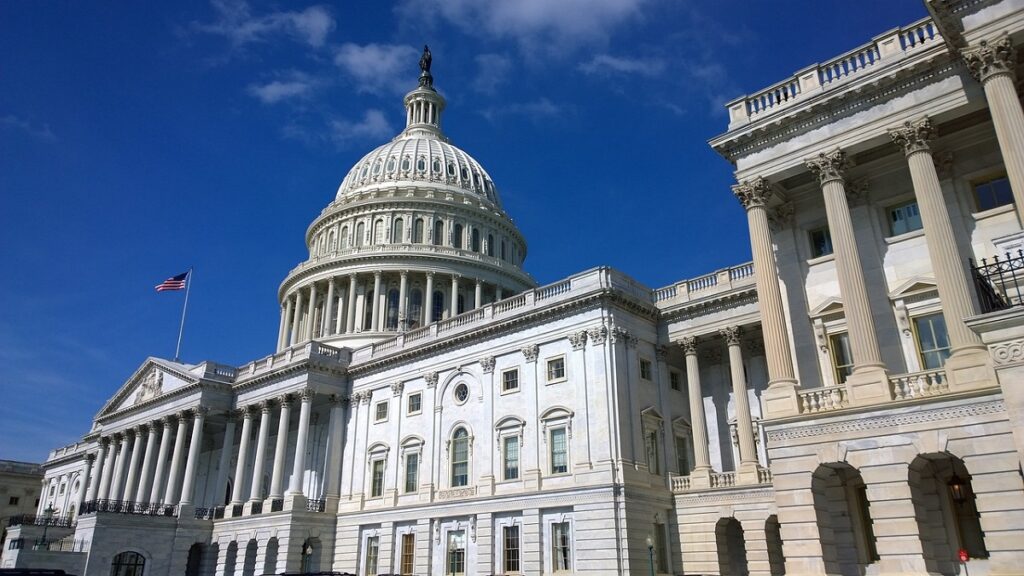Legislation to increase transparency of pharmacy benefit managers (PBMs), and to reauthorize the Pediatric Priority Review Voucher (PPRV), the Pandemic All Hazards Preparedness Act (PAHPA), and the Farm Bill, were among important provisions included in Congress’ end-of-year spending package.
The proposals appear likely to pass the House and Senate before the holiday break. The Biotechnology Innovation Organization (BIO) applauded the healthcare and agriculture provisions in the bill.
“Congress now has a pivotal opportunity to pass reforms and to authorize funding for programs that will make a meaningful difference to advance the health and well-being of the American people,” said BIO President & CEO John F. Crowley.
The package must pass by Dec. 20 to keep the government open.
Pharmacy benefit manager (PBM) reform
The legislation on PBM reform included in the package follows extensive scrutiny on PBMs and the way their “middlemen” practices drive up drug prices and limit patient access to medicine.
The reforms target spread pricing—in which PBMs profit by paying pharmacies less than they receive from health plans—with legislation limiting PBM income to bona fide service fees. It would also require PBMs to open up their opaque business operations.
The PBM industry is highly concentrated, giving the top three PBMs control of roughly 80% of the prescription drug market. PBMs are also consolidated with insurers and pharmacy chains, creating market distortions and conflicts of interest, as the Federal Trade Commission has noted.
“Advancing these PBM reforms will begin to break the pernicious link between the fees that PBMs charge and the cost of medicines,” Crowley said of the proposed legislation. “Now is the time to take these important steps toward improving access to prescription medicines for patients, employers and taxpayers.”
BIO’s recent online Patient Advocacy Coffee Chat highlighted numerous examples of how PBMs inflate drug prices and negatively impact patient outcomes. For example, patient advocates spoke of how utilization management practices, like step therapy and prior authorization, lead to lengthy treatment delays and reduce patient access to the medicines they need.
BIO also outlined the harm caused to patients as PBMs profit through rebates from drug makers, impede patients from getting the drugs their doctor prescribes, profit from higher drug prices, edge out independent pharmacies, and keep employers in the dark about rebates.
“PBMs are a black box, generating billions every year in profits for the big insurance companies that own them,” according to BIO. “Injecting more transparency into the system is the least that reform legislation can do.”
Pediatric Rare Disease Priority Review Voucher (PPRV)
The year-end bill would also reauthorize the PPRV program until September 2029. This vital legislation incentivizes the development of innovative treatments for children with the most rare and devastating pediatric diseases.
Established by Congress in 2012, the PPRV encourages development of treatments for children with rare diseases. Companies gaining approval for drugs targeting rare pediatric diseases can be awarded a voucher granting expedited review of another drug in the future. Drug makers can also fund drug research by selling the voucher to another company.
“For more than a decade, the rare pediatric disease priority review voucher program has offered immeasurable hope to countless families,” BIO’s Crowley has said. “As a father of two children with a rare disease, I am grateful that lawmakers are working together, on a bipartisan basis, to continue this vital program.”
A Dec. 4 letter organized by the EveryLife Foundation and the National Organization for Rare Disorders, and co-signed by more than 200 other patient advocacy groups, had pressed lawmakers to act this year.
“As you work to finalize legislation for consideration before the end of the 118th Congress, the undersigned 213 organizations urge you to pass or include within any larger bill the provisions of the Creating Hope Reauthorization Act (H.R. 7384/S. 4583), which would reauthorize the highly effective Rare Pediatric Disease Priority Review Voucher (PRV) program,” the letter said.
The Council of State Bioscience Associations (CSBA), a coalition of independent state and territory-based non-profit trade associations affiliated with BIO, also urged extension of the PPRV in a Sept. 9 letter to congressional leaders that explained the value of the program.
“Since the start of the [PPRV] program, 53 vouchers for 39 rare pediatric diseases have been awarded which have led to innovations benefitting over 200,000 vulnerable patients. 36 of those rare pediatric diseases had no previously approved therapies,” according to the CSBA letter.
Pandemic and All-Hazards Preparedness Act (PAHPA)
Several PAHPA provisions would be extended for a year or more.
PAHPA provides policy to address pandemics, bioterrorism, and other public health emergencies. It enables public-private health partnerships to sustain medical countermeasure (MCM) development and to keep pace with emerging chemical, biological, radiological, and nuclear (CBRN) threats facing the United States.
Since its launch in 2006, PAHPA has been renewed regularly with bipartisan support. Before PAHPA expired on Sept. 30, 2023, some components of the law were extended until the end of this year. The package proposed on Dec. 17 includes extension of more provisions.
One key provision that would be extended for two years under the new proposal is the Medical Countermeasure Priority Review Voucher program (MCM PRV). The MCM PRV program encourages development of MCMs against emerging biothreats. As a letter from BIO and a dozen other stakeholders noted, MCMs need this support.
“Many of these countermeasures, crucial for our national security, face the risk of neglect due to lack of a commercial market. The PRV program is central to overcoming these market failures by incentivizing the creation of these essential medical countermeasures through the expedited review of a subsequent product,” said the letter, sent to congressional leaders shortly after some PAHPA measures had expired last year.
Another key provision to the new proposal is the section on “Medical Countermeasures for Viral Threats with Pandemic Potential.” The addition of this Viral Families Strategy will accelerate research and development (R&D) timelines of broad-spectrum vaccines, therapeutics, and monoclonal antibodies when new viruses emerge from these families and will enable the biotechnology industry to develop broad-reaching MCMs based on foundational basic research.
Over 30 representatives from biodefense companies joined BIO last month to meet with bipartisan Congressional leaders and advocate for PAHPA reauthorization. Additionally, BIO was one of the more than 110 signatories in a Nov. 13 letter urging congressional leaders to pass a comprehensive PAHPA reauthorization package this year.
The letter points out the range of potential public health challenges.
“These threats—whether they emerge from advances in biotechnology and artificial intelligence, naturally occurring outbreaks, major storms, deliberate attacks, or accidents—require an agile, authorized, responsive government infrastructure,” the letter said. It notes reauthorizing PAHPA enables “strengthening existing programs and continuing to adapt and improve America’s health security infrastructure for new and future challenges.”
Other important patient-focused legislation included
Other legislation of importance to patients was included in the proposal:
- H.R. 5397, the Joe Fiandra Access to Home Infusion Act, which would provide Medicare coverage to home infusion drugs that are not self-administered.
- The Accelerating Kids Access to Care Act (H.R. 4758) would prevent delays in the ability of children with complex medical conditions to seek specialty care at out-of-state centers of excellence.
- Part D cost-sharing legislation would eliminate generic drug cost-sharing for the Medicare Part D Low-Income Subsidy (LIS) program.
The Farm Bill
A one-year extension is planned for the Farm Bill, a package of legislation authorizing most of the agriculture programs and policies conducted by the U.S. Department of Agriculture (USDA)—including programs with a big impact on the biotech industry.
“The extension of the farm bill provides critical support to American farmers, ranchers and innovators, and enables continued research, development and sustainability of our nation’s food and renewable fuel supply,” BIO’s Crowley said.
BIO has been advocating for a full five-year Farm Bill that would include key priorities such as:
- Preference for biobased products in federal purchases.
- Support for plant-incorporated protectants and plant biostimulants.
- Support for sustainable aviation fuel and renewable chemicals other biofuels.
- Streamlined regulation and better coordination among regulatory agencies impacting agricultural biotech.
The Farm Bill is generally renewed every five years with broad bipartisan support. The 2018 Farm Bill was extended for a year before its expiration in 2023, and technically expired on Sept. 30, though most programs continued through December due to previous funding commitments.
Read BIO’s full statement on the proposed package of legislation.




